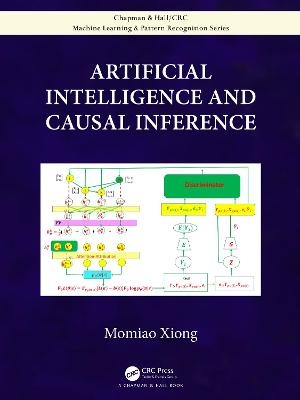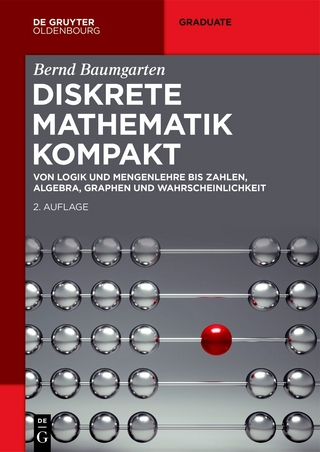
Artificial Intelligence and Causal Inference
Chapman & Hall/CRC (Verlag)
9780367859404 (ISBN)
Key Features:
Cover three types of neural networks, formulate deep learning as an optimal control problem and use Pontryagin’s Maximum Principle for network training.
Deep learning for nonlinear mediation and instrumental variable causal analysis.
Construction of causal networks is formulated as a continuous optimization problem.
Transformer and attention are used to encode-decode graphics. RL is used to infer large causal networks.
Use VAE, GAN, neural differential equations, recurrent neural network (RNN) and RL to estimate counterfactual outcomes.
AI-based methods for estimation of individualized treatment effect in the presence of network interference.
Momiao Xiong, is a professor in the Department of Biostatistics and Data Science, University of Texas School of Public Health, and a regular member in the Genetics & Epigenetics (G&E) Graduate Program at The University of Texas MD Anderson Cancer Center, UTHealth Graduate School of Biomedical Science. His interests are artificial intelligence, causal inference, bioinformatics and genomics.
1. Deep Neural Networks. 2. Deep Wide Neural Networks. 3. Dynamics of Output of Neural Networks. 4. Deep Generative Models. 5. Representation Learning. 5. Graph Representation Learning. 6. Deep Learning for Causal Inference. 7. Deep Learning for Counterfactual Inference and Treatment Estimation. 8. Reinforcement Learning, Meta-Learning for Causal Inference and Quantum Causal Analysis.
| Erscheinungsdatum | 10.03.2022 |
|---|---|
| Reihe/Serie | Chapman & Hall/CRC Machine Learning & Pattern Recognition |
| Zusatzinfo | 3 Tables, black and white; 72 Line drawings, black and white; 72 Illustrations, black and white |
| Sprache | englisch |
| Maße | 210 x 280 mm |
| Gewicht | 1520 g |
| Themenwelt | Mathematik / Informatik ► Mathematik |
| Technik ► Elektrotechnik / Energietechnik | |
| Technik ► Umwelttechnik / Biotechnologie | |
| ISBN-13 | 9780367859404 / 9780367859404 |
| Zustand | Neuware |
| Informationen gemäß Produktsicherheitsverordnung (GPSR) | |
| Haben Sie eine Frage zum Produkt? |
aus dem Bereich


